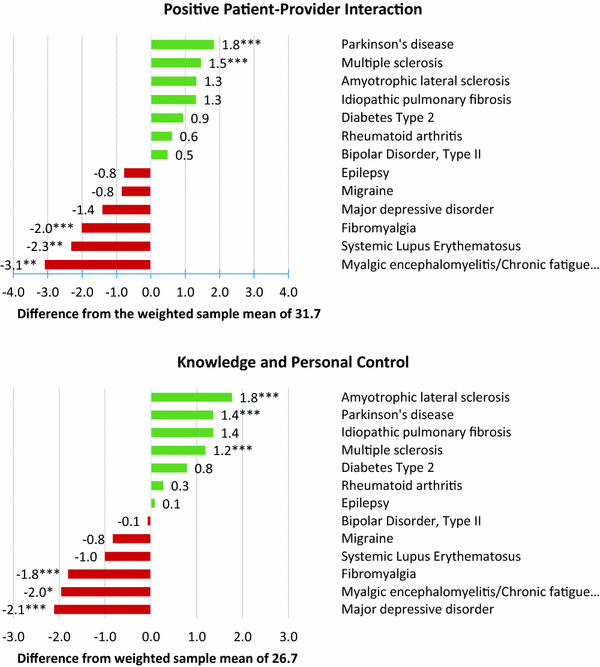Who Me?
Well-Known Member
Factors in Patient Empowerment: A Survey of an Online Patient Research Network
First online: 07 May 2016
DOI: 10.1007/s40271-016-0171-2
First online: 07 May 2016
DOI: 10.1007/s40271-016-0171-2
http://link.springer.com/article/10.1007/s40271-016-0171-2Abstract
Background
Providers and healthcare organizations have begun recognizing the importance of patient empowerment as a driver of patient-centered care. Unfortunately, most studies have investigated empowerment with single diseases. Identifying factors of empowerment across conditions and populations would enable a greater understanding of this construct.
Objective
The purpose of this study was to understand empowerment in relation to health information-seeking, interactions with providers and peers, and healthcare access in chronic disease patients. This study also sought to identify key empowerment factors and their association with patient characteristics.
Methods
Participants were recruited through PatientsLikeMe, an online research platform where patients share their personal and medical history data. Patients completed an online survey that assessed self-reported health behavior (e.g. knowledge-seeking, experiences with healthcare providers, and peer interactions) and healthcare access. An exploratory factor analysis identified key empowerment domains. Domain level sum scores and sum of all domains (total score) were compared across patient characteristics and diseases.
Results
Overall, 3988 participants were included in the study, with the majority actively involved in their healthcare, but many cited difficulties with matching their treatment goals with those of their physician (34 %) and spending sufficient time with the physician (36 %). Factor analysis identified two domains—Positive Patient–Provider Interaction, and Knowledge and Personal Control—that explained >60 % of the overall variance in the observed variables. Mean total empowerment scores for patients with a primary complaint of Parkinson’s disease (61.8) and multiple sclerosis (60.3) were significantly greater than fibromyalgia (55.3) and chronic fatigue syndrome (54.8). Patients who were older, male, more educated, and insured also reported significantly greater levels of empowerment.
Conclusions
The two domains of empowerment identified in this study are consistent with previous studies, but the differences in empowerment levels across diseases suggest a need for further studies on disease-related attributes of empowerment. Future research should examine the pathways for empowerment, as well as the relationship between empowerment domains and clinical outcomes.













